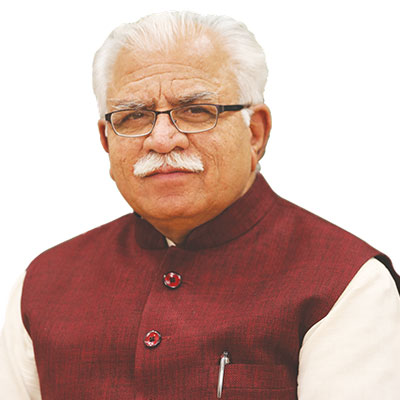
Manohar Lal
Chief Minister
Haryana
Shri Manohar Lal, the Chief Minister of Haryana and a visionary leader was born on May 5, 1954, in the village of Nindana, Rohtak District. Shri Manohar Lal is an alumnus of Delhi University and is proficient in Hindi, English, and Punjabi.
His political journey is marked by his election from the Karnal assembly constituency in the general elections of both October 2014 and October 2019. A technophile, he has a profound interest in information technology and has spearheaded numerous innovative projects in Haryana. These initiatives have garnered national attention and inspired similar projects across the country.
Apart from his technological acumen, Shri Manohar Lal is deeply committed to improving systems and social reforms. His efforts are guided by the guilding principle of ‘Antyodaya’, focusing on uplifting the most vulnerable in society. This approach has earned him immense trust and respect.
Before his foray into politics, Shri Manohar Lal has been a dedicated pracharak of the Rashtriya Swayamsevak Sangh (RSS) and thereafter has held numerous crucial posts in the Bharatiya Janta Party.
His extensive experience and commitment to service have been instrumental in his successful political career.